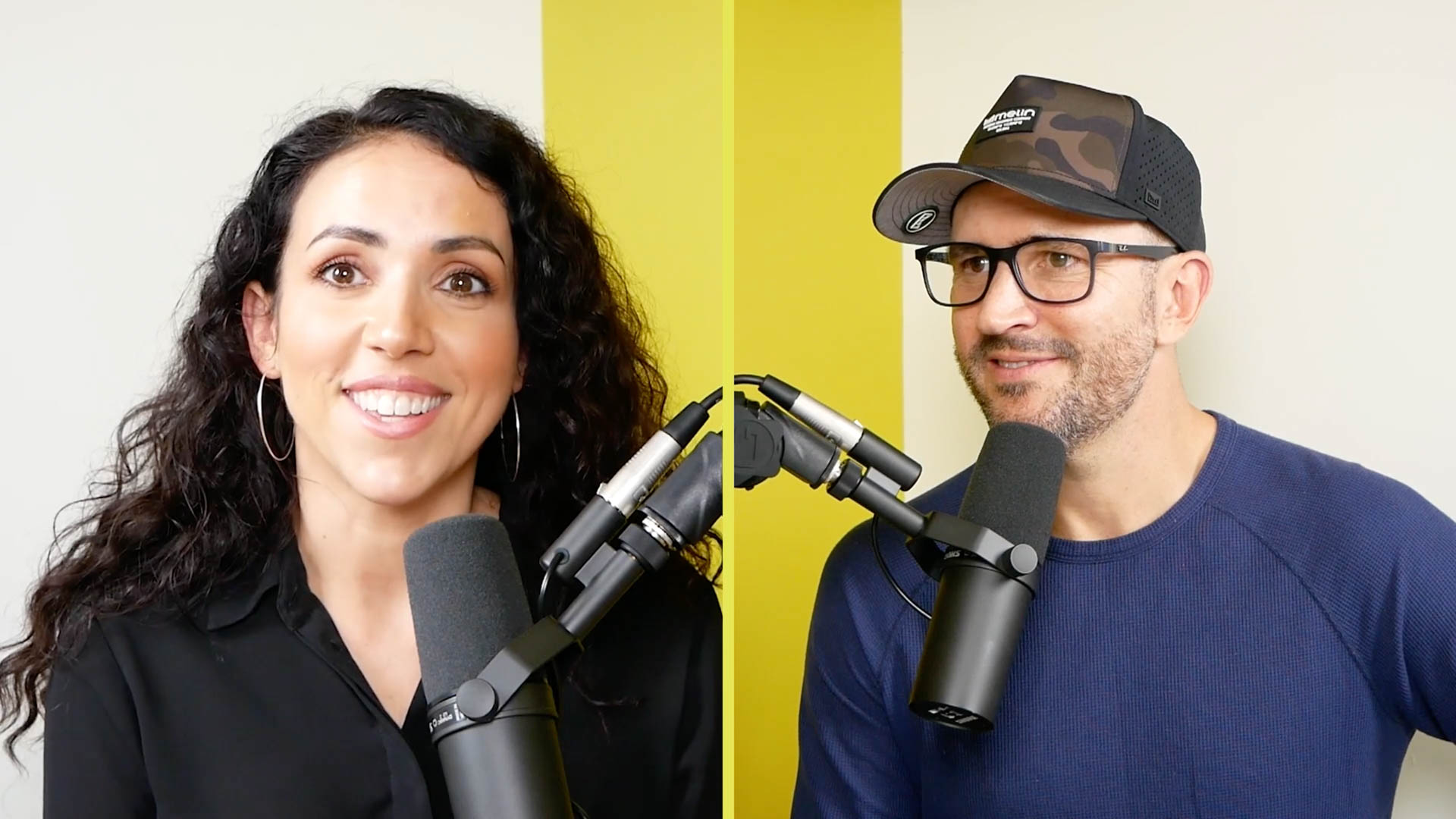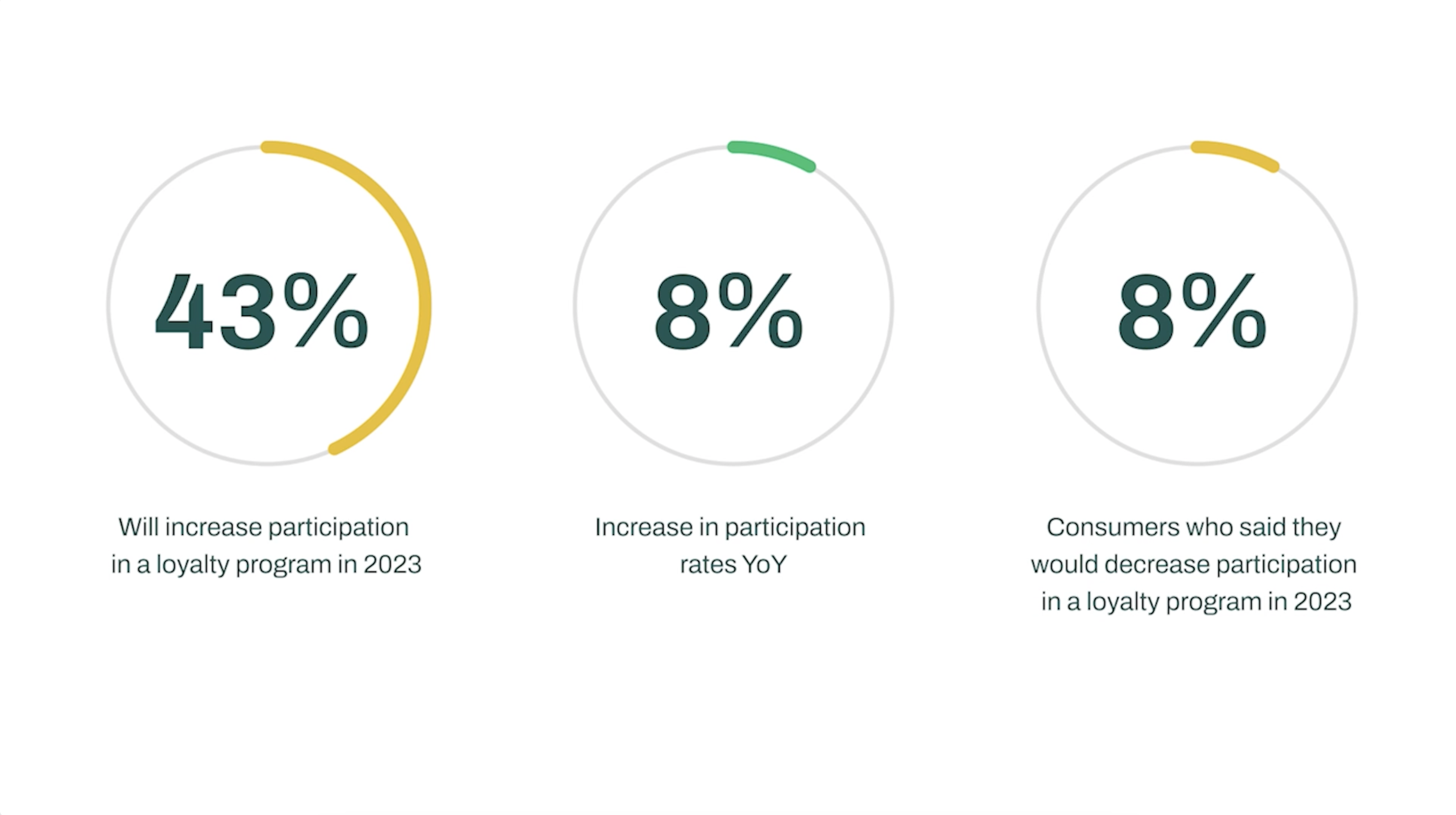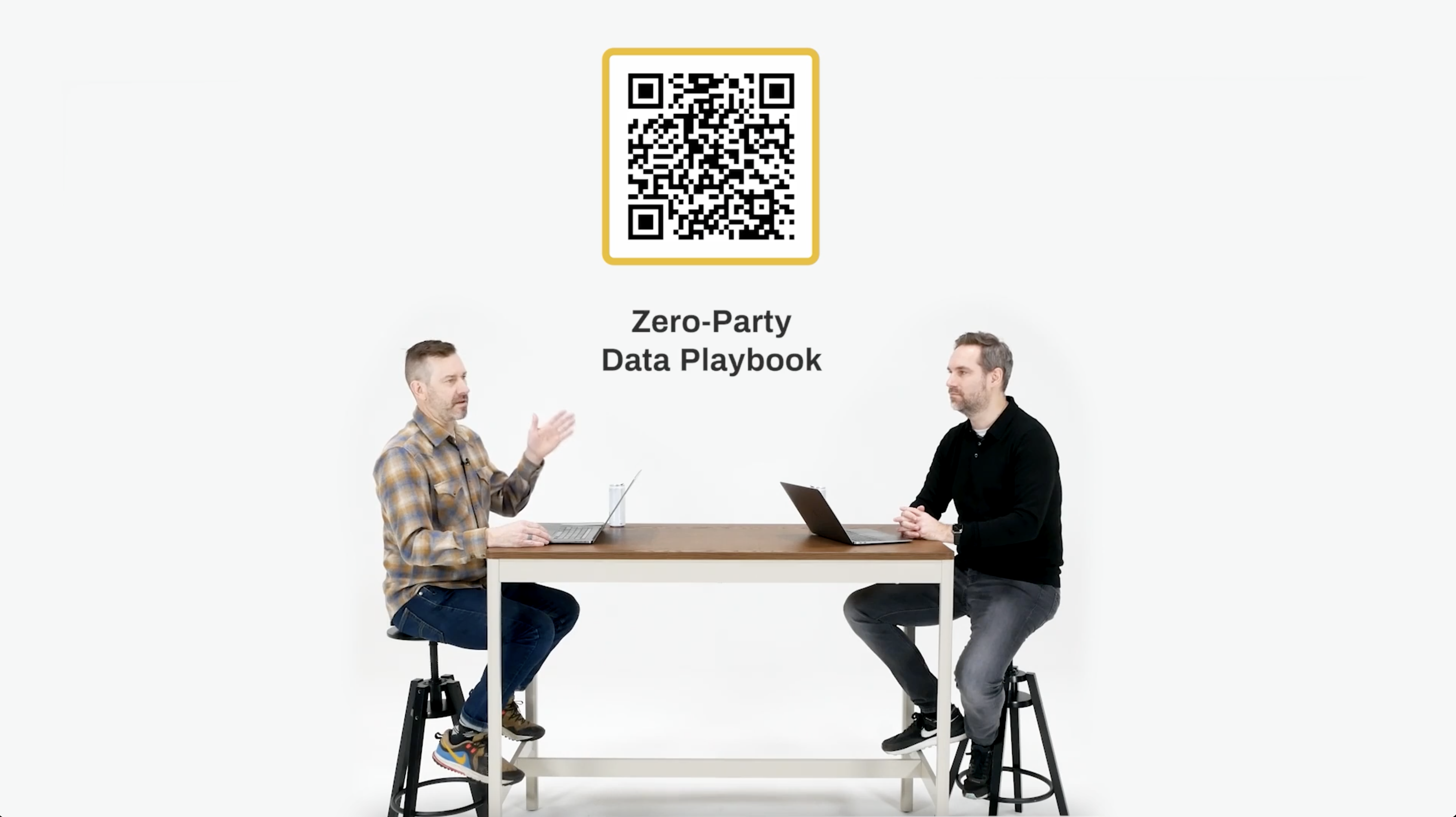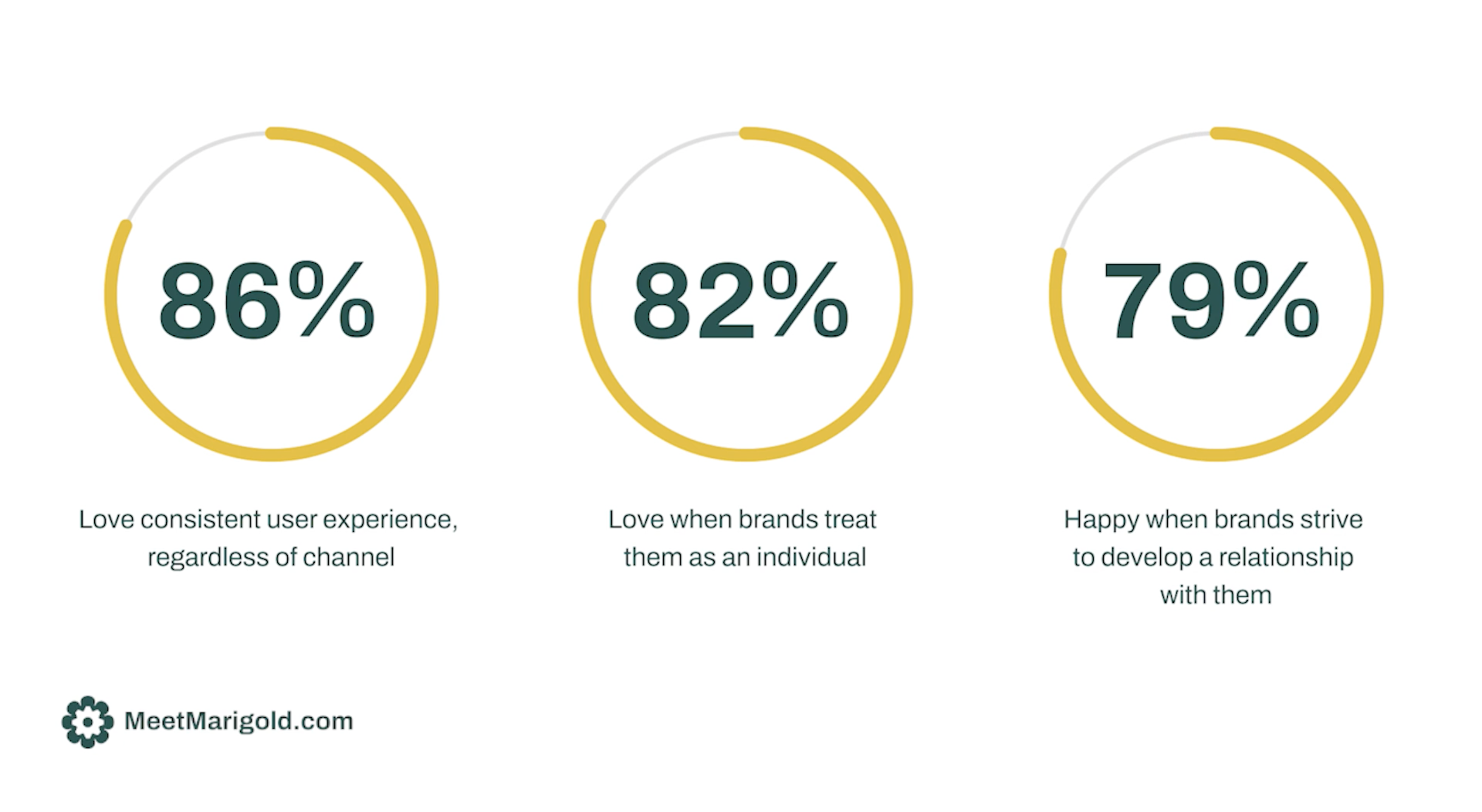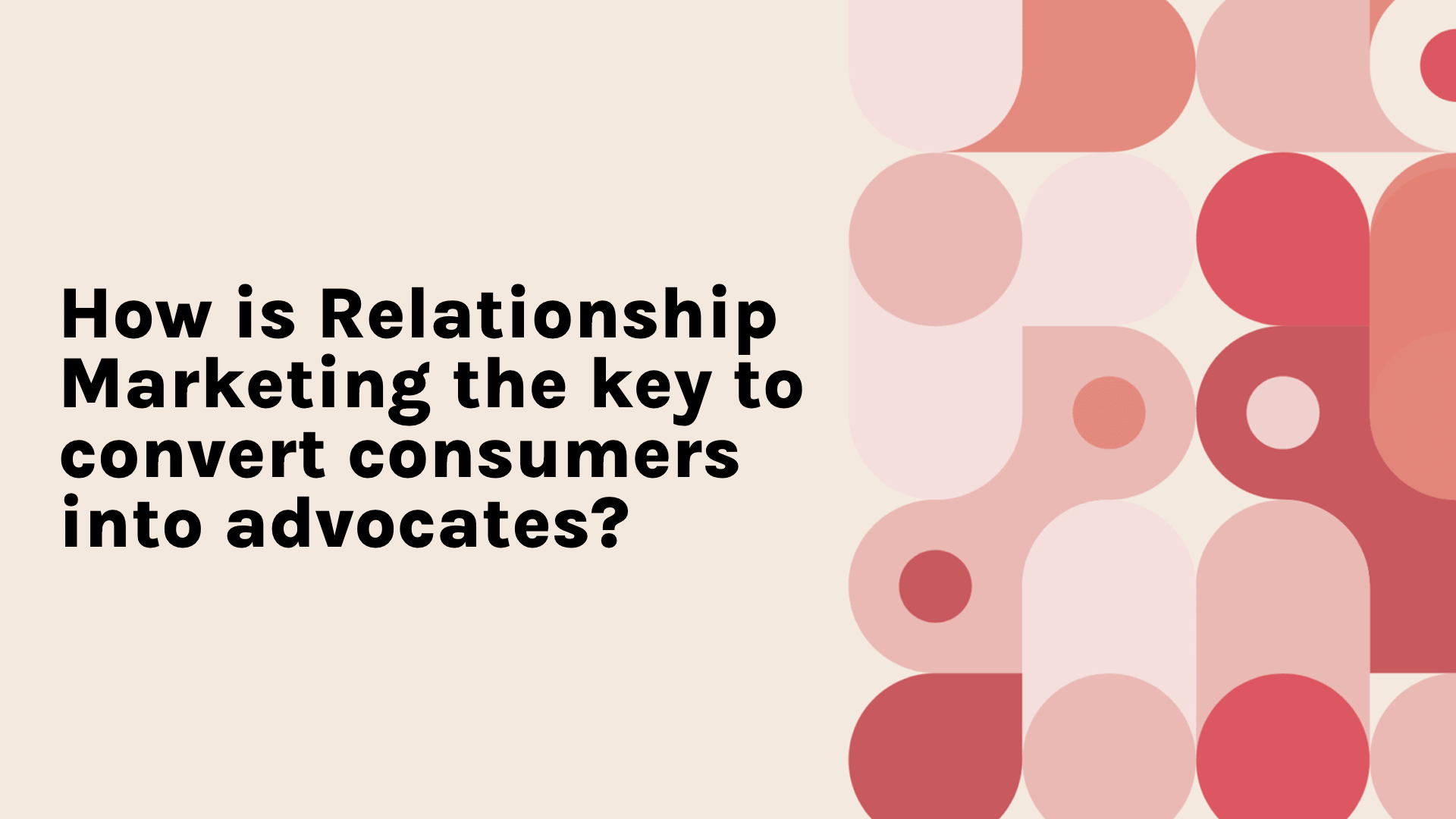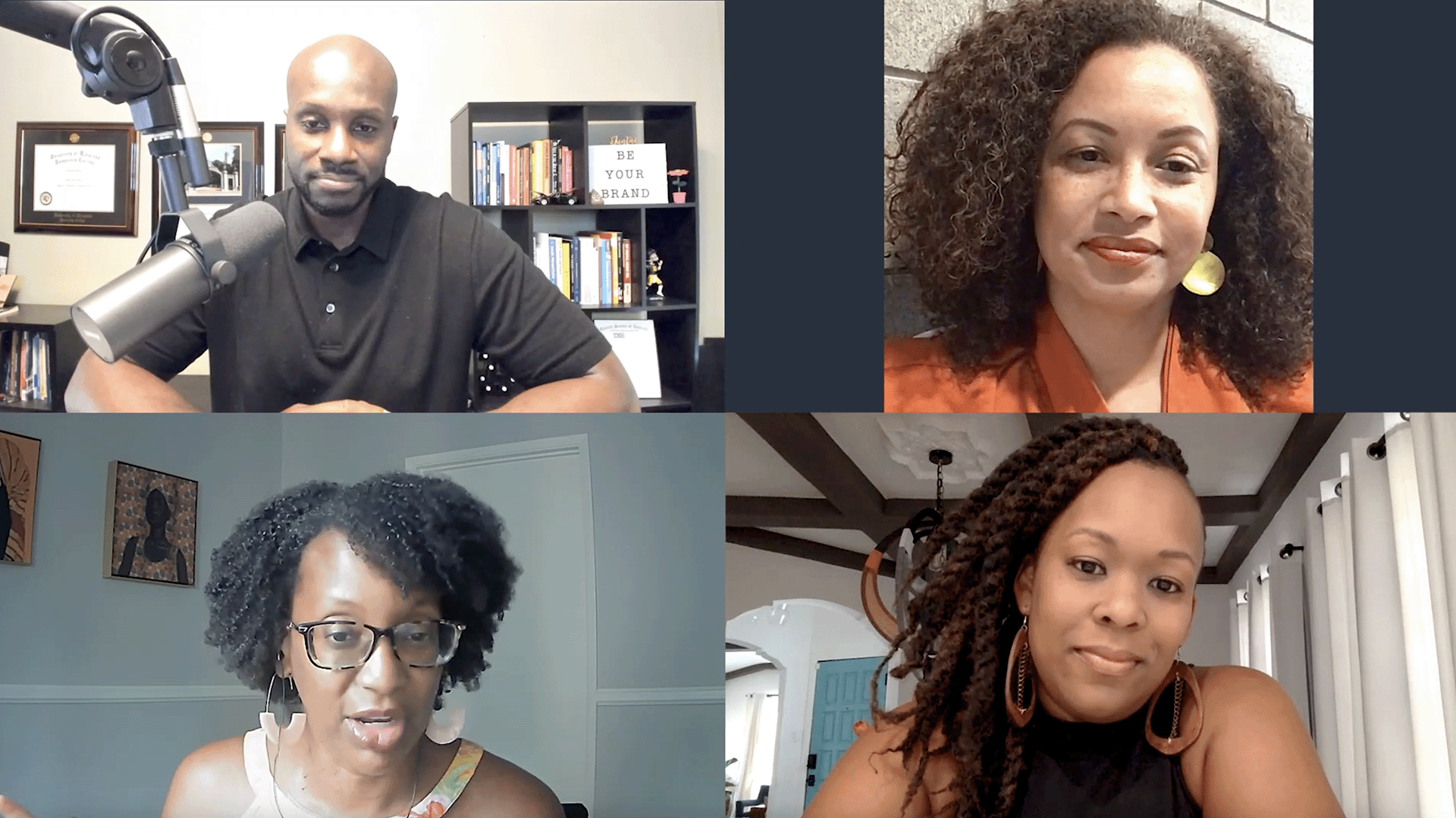Zero-Party Data: Building Crucial First-Party Relationships
- 0.5
- 1
- 1.25
- 1.5
- 1.75
- 2
Richard: Welcome to today's session where we are going to be talking about zero party data and how to unlock those all important first party relationships. And I'm very pleased to be joined by Nick Watson, senior vice president of Cheetah Experiences. Welcome Nick.
Nick Watson: Thanks very much, Richard. Hi, everyone, thanks for joining. Yeah, we've got a great session today, including some examples from some awesome brands like PepsiCo, the FA, the Football Association, Nordstrom, Aeropostale, Kraft Heinz as well. We've also got some great interviews with Adam Rutzler from Arsenal, and Louise Vincer from GSK too. So lots to enjoy in this session coming up.
Richard: Well, brilliant. Now, first, I think we should probably ask the question. What is zero party data?
Nick Watson: Well, zero party data is a form of self- reported data that a consumer willingly and actively gives to a brand in exchange often for some sort of value, whether it might be a recommendation or a price, and that data is captured with all of the necessary marketing opt- ins and preferences as well, which is about someone's personal preferences, psychographic data, demographic data as well.
Richard: Now we should address the question as well. Why is zero party data so important in today's marketing and advertising environment? And it's very, very simple. As we struggle as marketers to sort of balance on the one hand personalization and the need for delivering great personalized experiences to customers with privacy and consumers right and expectations, that we treat their data ethically, and that we are transparent and clear with how we drive the data needed for personalization. Zero party data is being touted by many as the answer to that particular problem, because it is not only data that is willingly and transparently shared to you as a consumer, but is also data that is fantastic for driving personalized experiences.
Nick Watson: Yeah, that's right. It's all about trust. And that's really, really important now for brands to build trust with their consumers. We all see it and outstanding for something as a brand is important and therefore your data strategy needs to stand up to scrutiny as well in the way that you are using your data collected from your consumers in the most trustworthy way possible. And that will lead to revenue and sales too.
Richard: Now, have you got any analogies for us of what is zero party data in layman's terms?
Nick Watson: Yeah, if you haven't started, the one way to think about it is in your own personal life and your personal relationships, Richard, if we'd only just met and I thought, " Hey, this guy, Richard, he's a pretty cool guy, maybe he'd like to come around to dinner at my house." I would obviously actively ask you what you liked in terms of your preferences. If you had any allergies, if you had any particular likes or dislikes, for example.
Richard: Wine I like wine.
Nick Watson: Yeah, exactly. And you love anchovies on your pizza. The thing is, the alternatives and if you look at it in the way that so many marketers have been trying to obtain that data these days, well, they've effectively been looking through the trash, looking at what you'd bought in the past and taking a look at the packaging and saying, " Oh, he's bought this before," you don't know whether he liked it or disliked it, but you know he bought it. And you can also get a pair of binoculars and look through the window while someone's eating dinner. And I could be looking at that way and snooping on you effectively as well. When you look at it and think about it like that, that's the way brands have been trying to obtain that data. And actually that the real key point is just ask and consumers will tell you.
Richard: So it's not only the gold standard of data, because it is consumers telling you directly about what their motivations and desires and interest and preferences are, but it's also an invaluable tool for surviving the death of the third party cookie?
Nick Watson: Yeah, it is absolutely, it's really important because so many brands have been utilizing third party data, third party cookie data to reach the same people over and over again. And actually by having a firstly, the zero party data strategy, you have this ability to find people with the right message at the right time that's going to resonate with them, because it's something about them that they told you. Therefore, they're more likely to click on the email or to react to the particular piece of personalization on your site, for example.
Richard: Plus if you build up a very large engaged database with lots of zero party data points, you've taken control over your own customer relationships, which is super important when you're seeing all this disruption that's happening in ad tech MarTech because of privacy.
Nick Watson: Exactly. No one knows quite where this is going to end up right now, but you cannot doubt that having your own data database of first and zero party data is never going to be a bad thing. I think whether or not somebody comes up with a new way of tracking and the new third party cookie, whatever that might be. And everybody's trying to combat to those changes that are undertaking in the industry right now. I think ultimately having your own data is absolutely critical.
Richard: Now, next question would be before we start looking at the examples, when should we be collecting zero party data? Is it something you do to drive customer acquisition or something you do with your VIP members?
Nick Watson: Well, I mean, I'm going to talk directly to everybody, you should be collecting data at every point, you should be collecting data to acquire new people into your list. You should be collecting data about people already in your list to find out more about them. You should be collecting data as part of a loyalty program to drive that emotional connection with them and make them even more loyal.
Richard: To treat them as individuals.
Nick Watson: To treat them as individuals, exactly. And so that it should be across the entire customer life cycle, and importantly should be across every channel as well. So think about your social channels, the opportunities to collect data off the back of your social ad spend, on your website, also inside your app, for example. I mean, there are so many different places that there is an opportunity to collect a data and often they're missed opportunities and brands don't even try.
Richard: Now, if we actually sort of think about kind of collecting data, we have obviously as Cheetah Digital, we've got many customers that are in the messaging, the email space, that's how they use us. And we know that we should be collecting zero party data as the modern preference center. Talk a little bit about that.
Nick Watson: The way that we think about it is actually considering the journeys initially. And we obviously have our capability with our journey designer at Cheetah, and the idea of building into journeys, data capture, first and zero party data-
Richard: So that seems like your welcome journey.
Nick Watson: Absolutely. So your welcome journey, and the idea is by collecting some data about someone early on in your relationship, where perhaps they've just signed up and they haven't even bought a product, you know nothing about them, but you could ask them and then use that to drive them to that first or that second purchase more quickly. And in doing so, you're getting that preference information that we know for a fact that people aren't going and clicking through to preference centers. They're not engaging, they're not dynamic in any way shape or form. You are not getting that data that you want to segment your consumers and better market to them and better personalize your marketing to them.
Richard: And lastly, we should also just cover off the concern that some people have about zero party data. I've seen it before out there in the media, the zero party data isn't something that scales. Now, really, really important to make this point, we collect about 750 million net new names into the database of our customers every year. And then when you consider all of the data points that we collect through these interactive experiences delivered from Cheetah Experiences, we're talking about billions a year, in terms of discreet data points, zero party data points that we collect that is the gold standard data. So you can absolutely do this at scale.
Nick Watson: Yeah, absolutely you can. And if you have an always on data strategy, if you are focused on every part of your organization thinking about where is the opportunity to collect data, the volumes will then come.
Richard: All right, well, let's start digging into some brand examples. What have you got for us first?
Nick Watson: Well, we're going to look at these brand examples, but actually what I want to focus on in each of these examples is this additional value to a data strategy.
Richard: Right, why should be people doing it?
Nick Watson: Exactly, each of these examples that we're going to talk about are going to have these additional benefits to the organization other than just the data. So let's think about the fact that you could be driving sales or revenue directly through the moment of interaction that you have in an experience. You could collect some data, and you could guide them towards a personalized product recommendation. They could go and buy that product, for example. Conversely, you could have someone go and buy a product in store and have a code and they make that purchase and prove that purchase and then come and give data. And of course, through that experience itself, people are engaging, they're interacting with a fun mechanic, whether it's a quiz, a contest, a poll, anything else like that, they're also consuming your content in a way that perhaps they wouldn't, when they're just passing through, or just seeing an ad, they're becoming more aware of your products. They're able to watch video content and maybe answer questions afterwards as well. So there's a real engagement aspect to these experiences too. And then finally, of course, as we talked about the whole entire customer life cycle, you can taking these experiences and opportunity to more loyalty with your customers as well. Not just treating them as VIPs and giving them a personalized experience and rewarding their loyalty, but also fostering advocacy as well, making them sponsors on your behalf and talk about their positive experiences with user generated content that they might upload or take part in experience and create fantastic.
Richard: Fantastic, and now I know that the brand examples we've got are going to look at all of these different aspects. So data collection, driving revenue, with sales, engaging customers and driving loyalty. What are we going to start with? What brand are we going to start with first?
Nick Watson: We're actually going to start just looking overall at media and sports. And they have a very particular use case. They drive huge volumes of data, but they also have a very engaged audience. And so they can take advantage of that. But they also, as media brands and sports brands have relationships with sponsors and that's where they drive a lot of revenue from as well. We'll kick off and we'll talk for example, first about Bauer. Bauer Media, we work with the UK, we've been working with them for a number of years, and over that time they have collected over 25 million entries and submissions into their experiences of which they've delivered over 18,000 of them. And they're running these experiences, not just on their behalf, but on the behalf of their advertisers and their sponsors as well. So they're collecting this vast amount of data about their audiences that they're then able to monetize for their own use, for their own marketing, but also to offer to their advertisers as well. And so therefore from that perspective, they're able to both monetize the advertiser experiences or their experiences, but they're also able to sell directly their experiences as co- branded opportunities to the brands that they work with too.
Richard: Yeah, that's fantastic. And I know another media company that we work with is discovery communications, that have been using interactive experiences, sweep states competitions, that type of stuff, to engage their audience and also drive revenue from their advertising partnerships and sponsorships. So tell us about that.
Nick Watson: Yeah, exactly, in the same way, but just on another scale up, because at discovery, they have the power of the TV behind them as well. Bauer have radio, and they have print and online publications, but discovery have got on- air promotion and they're giving away things like a house.
Richard: Nice.
Nick Watson: And so they're able to fund that through the sponsor relationships that they have and the way that they therefore work is that, as people come back to participate in the experience, they're progressively given different sponsor opt- ins and that data, the second party data agreement is first party data that's then shared with the brand who's the relevant brand that someone opted into. So again, all the right permissions, it's not creepy in any way, shape or form. It's very clear you're opting into that sponsor's communications. And Discovery are able to therefore offer that to their sponsors and also offer a whole range of sponsors as they're partaking in different experiences. So the dream home giveaway is the perfect example there.
Richard: Got it. And I know that they are collecting billions of zero party data points a year.
Nick Watson: Yeah, 2. 6 billion submissions.
Richard: There we go. Not bad. All right, okay, that's interesting from a media perspective, what have we got next?
Nick Watson: In the media landscape, a lot of sports organizations and sports teams are effectively also media organizations as well. And we work with the Football Association, the FA here in England. It's been a great year if you're an England fan, we didn't quite make it.
Richard: Not so great, better if you're an Italian fan, I think.
Nick Watson: Exactly, we've been the nearly men for a long time and we still are, but the FA were in a really good place to capitalize on the engagement with the fans during that time. And actually the last three months alone, they captured over half a million entries into experiences that they were running. And 55% of them were net new names into the database as well. They had a brilliant opportunity and they were running these with different types of experiences, included sponsor promotions as well, there were player of the match polls that they published out on social sponsored by BT and they had team selectors. And this was for their men's team and their women's team as well across the board. They had lots of different types of experiences to engage their fans, but of course, every point to capture data and begin that relationship, which could allow them to promote the supporters club, merchandise sales, and obviously sponsor revenue as well. Real other business benefits and value to grow the database and drive and fan engagement too.
Richard: Now, it's great that we've got Adam from Arsenal to be telling us a little bit more about how they use both Cheetah Experiences and Cheetah Messaging to drive their fan engagement and deliver personalized experiences and drive revenue. But before we get Adam and hear from whom direct, what are you going to say about arsenal?
Nick Watson: Arsenal, again, they've been using our messaging product and then they saw the power of experiences and have been using that in an incredible way since then, driving fan engagement, driving data collection across the board with these experiences repeated week in week out, including for example, a score predictor, really great way to engage fans and drive data collection as well. You asked to participate and give your predictions for scores. Who's the first scorer, what minute as well. They even have a leaderboard which tallies up where people are, who are playing week in week out. That also uses our remember me capability for people who don't have to enter their data again, if they've partaken one week, they won't have to enter all their data the next as well.
Richard: Great. Well, now let's hear directly from Adam at Arsenal. Adam, thanks very much for joining us. Firstly, tell us a little bit about the program you've undertaken at Arsenal to transform both the fan experience and the data you collect about your fans.
Adam Rutzler: Yeah, no problem. And so we started our journey probably about 10 years ago now with a significant investment in CRM. When I joined the club we had the classic siloed kind of databases, siloed systems, and that project was a real kind of consolidation of all of that. And so we invested in our CRM capability, invested in people, and built out our Microsoft Dynamics platform, that gives us the kind of foundation and the opportunity to build on top of that, where we've then gone and added the Cheetah Suite that we are super happy with. So we've got Messaging and Cheetah Experiences, we also have digital tracking platforms. So we track across our website, our app, our digital estate, so we make sure that we're collecting all that rich behavioral data of our fans. And most recently we've built out a loyalty program for our UK members to really give something back to our fans and ensure that that's another rich pool of data that we can collect. So it's been quite a journey, there's lots of different elements. I'm sure you'll touch on as we discuss this morning.
Richard: Tell us more about your loyalty program. Why have you set it up? What's the goal, et cetera?
Adam Rutzler: Yeah, we launched a new loyalty initiative called My Arsenal Rewards at the start of this season for the 21/22 season, which had been a long time planning. And really it's something where we felt that sports clubs in general kind of take the loyalty of their fans for granted a little bit. What we wanted to do is we wanted to create an initiative that really didn't ask the fans to do too much more than they already do, but really engage and make sure that we recognize that loyalty and give something back to them. So we created a program which is by the fans for the fans. And what that means is, we engage with our fans, we listen to them, we hold fans forums, and we wanted to understand what pain points they had, how did they want their loyalty recognized? One of the big pain points was they want a full stadium on match day to really get behind that team and drive the team forward. But all they want is a successful team on the pitch at the end of the day. And that's the way they believe the fans can really help. So simple things like rewarding fans who buy a membership, purchase tickets, attend matches with points that they can then redeem against money can't buy experiences and truly money can't buy experiences. We are creating rewards as part of our loyalty initiative now that you could attend a Mikel Arteta press conference, for example, and ask him a question. You can go for a tour at the training ground with your friends or family, and watch the players train and have lunch with the players afterwards. You can win things like playing on the pitch in an 11 aside game at the end of the season, these types of things. What we're trying to achieve here is recognizing our members for what they do day to day. So buying memberships, buying season tickets, buying tickets, attending matches, purchasing anything with the club, maybe through retail, giving them points for this. So not in actually saying change your behavior drastically, rewarding the things that they do and giving them points that they can draw down against money can't buy experiences. That is trying to really respond to what the fans are asking for us, which is how do we ensure they're 60, 000 passionate fans in the stadium week in week out, rewarding the fans for behaving in that way, buying the tickets and attending the games to give them things that they cannot get elsewhere.
Richard: How have you been able to leverage the data you collected to deliver a more personalized experience to your fans?
Adam Rutzler: Yeah, really important question. And one that Cheetah helps us man massively with. So over the course of the last few years, we've really focused across the spectrum of first party data. Obviously we built out our CRM, and have a bunch of transactional data, we invested quite heavily in our digital. So understanding how our fans engage with our digital states also stepping into third party data. We do a fair amount of append of external data and building out some quite robust UK based and international persona work. And finally through the likes of Cheetah Experiences and surveys, that all important zero party data. So that's given you a flavor of what we do in terms of the data space. And so then the question, how really leverage all of that data. That's what my team is really kind of tasked on, and to be honest, it plays out across all of our campaign touch points. And when I say that, I mean, email, I mean, push notifications, I mean, web and app, I mean, paid social, and really our goal and our objective here is relevance. So whether that is content we're putting in front of our fans, whether it's the type of campaign, the type of offer, or even the partner that we are putting in front of our fans. Because don't forget, when you get to having 30, 35 commercial partners, as well as all of the different products and services you offer as a club, it can become quite overwhelming quite quickly for fans. Making sure you use that data that you're collecting to ensure the relevance and that you're really adding value to fans experience with the club is fundamental to what we do. So that's what we try and achieve, we try and collect strategic data that we then have a plan to how we're going to use. Because what I've seen in the past a lot is that you can go away and collect some data, and then it's six months down the track where anyone thinks about how you're going to use it. Actually thinking that step ahead, those two steps ahead to make sure that you've got a plan for how you're going to be relevant, how you're going to add that value is key across all of those touch points for us.
Richard: That's great. Now, tell us a little bit more about the value exchange that you offer to fans to engage them in your program. What's worked well, what's not been so successful?
Adam Rutzler: The value ex exchange at arsenal has been historically we have a digital membership proposition, that really starts to say is a fan willing to exchange their data with us for rich content, rich video content, essentially. And a lot of other clubs have a different approach there, some charge for it. Some don't put it behind a pay wall at all and we put it behind essentially a sign up form. The data exchange there is content for data and that's worked well over the years. We've got about, I think 3 million digital members globally signed up through that kind of mechanism. But more recently the value exchange has turned into similar to the loyalty program, where we really and respond to fans in rewarding them with money can't buy experiences for engaging with us and passing us that data. We really try and link back to the kind of USP that we have as a football club. They tie into the club and the things that we can put in front of them that others can't. So obviously the kind of basic level of that is signed merchandise, signed football, signed shirts, but then can stem through right through to trips to the training ground and playing on the pitch example.
Richard: Now, Arsenal have got Cheetah Messaging and Cheetah Experiences, which are both modules of the customer engagement suite. So could you give us examples of how you are utilizing experiences and messaging together to level up your fan engagement?
Adam Rutzler: Absolutely. So we've had messaging for three years now and we've had experiences for, I think, one and a half, really happy and I think they complement each other really well. A few good examples, I think I'd give to that question. Firstly, we'll start with our partners. So obviously as a football club, your partner network is extremely important. There are a big amount of revenue that's brought into the commercial area and how we support and try and meet their objectives is really delivered a lot through Cheetah Messaging and Experiences. An example is Lavazza so the Italian coffee brand, we built a Cheetah Experience to kind of competition type mechanic. And within there we built some kind of profiling questions out around do they drink coffee? Do they have a coffee machine in their household? And it's basic simple questions like that, that are positioned within the context of the campaign. So it doesn't feel kind of too far removed and that can really help you drive out the future approach, or future strategy for how we're going to take Lavazza out to our fans. For example, Rich, and I can see you've got a coffee in front of you, you do drink coffee. Do you have a coffee machine at home? If that's a yes as well, then we know that you could be a potential for Lavazza capsules. Is that a Lavazza coffee machine? If it's yes, yes, yes. Then we know that that's a real good kind of opportunity for us. If you do drink coffee, but don't have a coffee machine then obviously that's a no- brainer, they have an objective to sell a lot coffee machines. So it's that kind of approach that we can linking back to the earlier answer about ensuring relevance and value. We want to make sure those things that are landing in the inboxes and on the social feeds and through our mobile app are really relevant and adding value to our fans. So through Cheetah Messaging and Experiences, we feel as though we've got quite a kind of strong data led approach to delivering value to our partners. There's another one, which is not a partner example, but more of a kind of internal Arsenal example. We've built out a match predictor. So at the start of last season, we put together a predictor, I think you've got to predict the first goal score of the score and even the time of the first arsenal goal. And the objective of that was to engage our fans to give them something, to kind of play throughout the season, to try and win weekly or monthly prizes. And then there's some signature prizes at the end of the season. Over year, one of that program, we engaged over 100,000 fans that we already had on our database and importantly enriched what we had about them as well. So quite basic level information to start with, but if we were missing a date of birth, for example, that was kind of backfilled and fed back into the database, which feeds into a lot of other kind of automated journeys that we have. So we need that full suite of information, so it's not just engagement, but it's building out those profiles as well. And in terms of acquisition, we acquired over 25,000 new fans through the match predictor mechanic as well. So really good success from engagement perspective and acquisition.
Richard: Now, how have you been thinking about what cross channel means to you and to your fans?
Adam Rutzler: The term cross channel is a really important one for us and we're actually trying to move towards an omnichannel approach. I think we do cross channel relatively well, what we've done there is we've brought in a lot of the channels that have been managed through different parts of the business at Arsenal, and try to centralize them within a kind of data led campaign team, because historically you had the app team controlling push notifications. You had the editorial and social team controlling paid social and, CRM doing email, for example. The strategy has been to bring all of those together to make sure that they can all assess eventually be maximize and make best use of the rich data that we've got and that we are collecting. That's been our kind of approach and it's really, really important for us, because what we found is that all of the different messages felt quite fragmented for our fans and that through having the right technology in place, the right data to underpin that technology, we wanted to make sure that there was a real kind of tied together approach that all of those different platforms and touchpoints were reading from the same page essentially. We've got the same process internally for all of those systems. They're all reading from the same data. As much as we can, we use the same kind of targeting opportunities to make sure that again, we are talking to the right fans about the right things. And finally, I think the last point on that is that, we still don't feel as though we have the kind of underpinning data architecture in the best place, or in the right place to fully build out an omnichannel approach. That is definitely one of the things that I think over the next 18 months, we're going to really focus on to make sure that we have the right data warehouse and data architecture set up to maximize our omnichannel campaign strategy.
Richard: So what's next in the campaign and data space at Arsenal?
Adam Rutzler: Yeah, there's a lot of moving parts at the moment. The interesting piece for us is I think taking or watching brief on football broadcasting rights. As most people are aware, they are managed essentially by the premier league, but there's a slight kind of downward trajectory on broadcasting rights and the value that they bring into the clubs. We are taking a real kind of keen interest in this, because we believe that the way that the clubs move forward and potentially the top clubs maximize this is through potentially taking those to market themselves. And what's going to be interesting here is that data is going to be at the heart of that. Top football clubs will claim to have between 500 million and a billion fans globally. And then they'll tell you that on their CRM is 10 million fans, for example, that's a huge difference. And I think if clubs are going to be able to truly take broadcast to market themselves, it's going to be about how can they really bridge that gap and how can they obtain data from fans globally to make sure that they are well positioned to not only broadcast and direct to consumer kind of approaches to that, but other products and services they have and also to be able to support their partners. That is a real kind of key objective for us. And as I kind of alluded to in the last question around our underpinning data architecture, that is going to really have to be reviewed if we're going to take that space seriously to make sure that we are set up for that kind of volume, and that kind of profiling that we can do to make sure that we've got the right audience in the right place to underpin something like that. The final thing that I would kind of touch on there is our loyalty program. So as I mentioned at the start, the loyalty program is at the moment only for our UK based members, because primarily around kind of stadium access and making sure that those fans that come to the games and have done for years, we recognize their loyalty and in a way that means something to them. But what we really want to do is we want to review that membership proposition, we want to build out that loyalty program internationally to make sure that anybody who is following our football club, giving their heart and soul to our football club, we understand that and acknowledge that and reward that in whatever shape or form that takes. And I think that's a really important step into the next couple of years for us as well.
Richard: And last question, how are you thinking about the death of the third party cookie?
Adam Rutzler: Yeah, that's on everyone's mind at the moment and on everyone's lips and I think it reinforces a lot that I've mentioned so far actually around again, our data architecture, and making sure that we are fully set up to essentially maximize and deliver a really robust database and first party set of data, and the zero party data that we are collecting from our fans, willingly happy to engage with us and understanding them more, to make us less reliant on what we need to do in the kind of third party space. And more that we can build that relationship ourselves, make them part of that loyalty program, recognize that their kind of loyalty and fandom from the club and give them something that's tangible back, means that I think that that should be kind of less impactful for us moving forward, but it's again, something we need to fully take a view on as things change, because as you know better than anyone things change very quickly in this space.
Richard: Adam, thank you very much for joining us. Well, that's fantastic to hear directly from Adam, but some might say, well, this is going to be much easier to do with something like a football club, a soccer club, because of the passionate engagement of fans with the sport and with the club. Let's think about something very different. Let's think about CPG. Not saying that people aren't passionate about their favorite shampoo brands, but probably not to the same level that they are with their soccer club that they've grown up with. But there's no transactional relationship either, so CPG is often it's not direct to consumer, they're doing it through third party retailers. For that kind of industry, what's zero party data, how are they actually collecting it? What's the value?
Nick Watson: As you state Richard, it's been really important for CPG organizations to drive that direct consumer relationship. And they've been making the shift over the last three to four years and we've seen it with the number of brands who've been working with us. They really have been reliant on cookie data, particularly third party cookie data in the past. So they need to catch up and they need to own their own data. And as you say, they're not really selling products directly. In fact, that is something that's changing with the lot of the brands we work with, but they hadn't historically been doing that. And if we look and let's just take a case study here of one CPG, an unnamed CPG that we work with and I think it highlights a number of aspects of why CPGs are using Cheetah Experiences and the benefits that they're seeing as well. First off, in the time that they've been working with us, they've seen over 2 million submissions and entries their experiences. They've got the volume, they're building the volume, which is critical to CPGs as well. In that time, they've also had 53% conversion rate to those experiences and a 51% opt- in rate as well. Really great statistics that they are driving people who are wanting to stay connected and have communications from that brand. But where we get to the really important parts, so there are two really good statistics here as well. The first is that of those people that then opted in and became part of a consumer program with that brand, they saw an uplift of over$ 120 worth of value for those consumers who were in a program already.
Richard: Wow. Okay, and then of the number of people that are engaging in these experiences, what kind of percentage of them actually gave their opt- ins?
Nick Watson: Yeah, so that's about just over 50% of those who gave their opt- ins. And so that therefore means out those 2 million entries, you've got at least a million people into the program who are engaged. And when you think about each of those individuals being worth$ 120 more, that's some revenue that they're already driving from the data they're collecting. There's one other important point, they also have been doing some statistics on the first party data captured so that the people they have first party data on, when they use those profiles to retarget in advertising, they are seeing a three times uplift in terms of the sales revenue of the advertising that they've been putting out there using first party data versus without. So incredible uplift from data from people who have actively interacted with the brand and given their permissions to be communicated.
Richard: Yeah, we're seeing that across the board in many different industries, I mean, the Pure Archery Group, another company that are going to be speaking at Signals, saw a 5X increase in the performance of their advertising conversions when it was driven off zero party data, fantastic results. So that's all good. Now, let's think about another a part of CPG. CPG companies, we all use these products, many of these products several times a day, they come in packages, that's great real estate. Have you got an example of a CPG that is connecting that kind of offline and online through unpack promotions?
Nick Watson: Yeah, absolutely. The unpack promotions have been ages old and predominantly the CPGs were doing it to drive sales and they still do that for that reason. So business benefit value from driving these particular type of campaigns is getting more sales, getting people to pull your product off the shelf, because there's an incentive to win a prize, or get something custom or unique or personalized, whatever it might be. And actually historically a lot of that data is almost away, it was seen as a byproduct and actually brands hadn't really been considering the value of the data that they were kept managing to capture at the moment of interaction with the particular code validation. I have a great example here from PepsiCo with their Doritos brand, they had a PlayStation 5 tie up, they collected over a million entries and they ran that across five different markets. So they used our cloning capability to localized a master experience and then publish it across five different markets. And importantly, therefore, as the consumer came to enter their code, they were given a chance to instantly win a number of different prizes. So there was a real instant gratification. It wasn't like enter them to a prize draw, and you might hear from us in a month, it was immediate win a prize. And they used some custom time windows and different pools of prizes to ensure that they could spread those prizes out over time and ensure that they were giving out the right prizes to the right people.
Richard: Now Kraft Heinz, Canada, another company worked with, what's their strategy? And is it different from what we've talked about with PepsiCo?
Nick Watson: Well, the beginning of their journey, in terms of wanting to collect PII data importantly starts from a place of actually having a richness of first party cookie data, because they had a Watts cooking recipe website, which was kind of their brand website as well. Therefore, they had a lot of people driven to that site, consuming recipe content that they had first party cookie data about, but they didn't know who they were, they were known effectively. And so what Kraft Heinz Canada did, is they took these cookie data profiles. They retargeted them in advertising channels, mainly social and they had a number of different experiences. They had three different experiences that they ran. One that was a for Kraft Heinz singles that gave away a personalized pan. Another, that was a mac and cheese, one for a limited to edition, pumpkin spice, mac and cheese. And another one that was Heinz ketchup related as well. All of them were simple giveaways, but they had some additional zero party data that they were collecting too. So they had some preference information, they understood a bit more about these individuals and what they saw was over 100, 000 people engaged and took part. And they converted from unknown known as well, which was about three times uplift in terms of what they were looking for from a benchmark perspective of the data they wanted to capture.
Richard: Now, I know we are very pleased to have Dr. Louise Vincer, from GSK to be talking about how they use zero party data. They've instilled a culture of data collection among all brand managers. Great to hear from her. But before we hear directly from her, how GSK set up the conversation? How are GSK thinking about these things?
Nick Watson: Yeah, this was one that was actually, again, cookie data related. The idea was using the zero party data to personalize their advertising. So they wanted to ensure that as they had people partake in some experiences that they were embedding on their sites. Like Corsodyl, they were asking about gum health and guiding towards some products and of course, collecting some zero party data on the way or Voltarol was, where's your pain effectively, or Piriton, it was about what allergy type that you have as well. And so, because of those people that opted into the cookie policy that they could retarget, they could then use that zero party data they were sending up to Google to then personalize the advertising to those individuals as well. And that's where they've started from using zero party data that in their ad tech stack, in order to better personalize their advertising. And of course, what that's allowed them to do is, is also by lookalike audiences to find similar types of audiences and make their media spend more cost effective. And we'll hear more from Louise about that.
Richard: Without further ado, let's hear directly from Louise. Louise, could you introduce yourself and your role at GSK?
Louise Vincer: Yeah, I'm Louise Vincer, I am the digital and marketing acceleration director for our UK consumer business. So people may or may not know that GSK has got split into multiple businesses and we've got pharmaceuticals and vaccines, but we've also got a lot of consumer health products as well, which are very much everyday healthcare products that you would find in many supermarkets.
Richard: And can I ask you, just because it's not necessarily that usual, but you're actually a doctor, so a true scientist and now you're in marketing. How did that happen?
Louise Vincer: A true scientist, there one point in my career. I did a PhD in physical chemistry looking at drug delivery devices. And then I got a contract from GSK looking at actives in all our healthcare products actually. And that was the start of my GSK journey, which I'm now 14 years into, which is quite a long time to be honest. Many, many, many jobs at GSK. And this is my favorite one actually.
Richard: That signals we've heard from a number of customers that have really been leveraging their own first and zero party data to increase the effectiveness and the efficiency of their media and advertising. How are you guys thinking about that at GSK? What's your plan? How are you approaching and setting that yourselves up for that?
Louise Vincer: Well we know there's obviously a lot of awareness of the value that this can drive in terms of efficiency and effectiveness. And we have a big focus on both of those elements, but more thinking about that effectiveness piece at the moment. So really understanding, having the confidence that we're investing in quality, quality audiences is a big thing. On target reach, are you talking to who you think you're talking to and then understanding what message you need to put out there to engage that group? What's the content, what's the creative strategy, what's the personalization elements potentially? We know zero party data can really give direct insights into content, preferences and needs improving that attention and that relevance which we then now translates into the delivery of more effective media plan and creative strategy.
Richard: Do you see the differences between your brands necessitating variations in your approach to collecting first party data?
Louise Vincer: Yeah, I think you've got to look at, I guess, within our portfolio, we've got lots of different types of categories and brands. We range from oral health, pain management, smoking cessation, vitamins and minerals, vitamins, minerals, and supplements, sorry, that's really cool. Vitamins, just normal people would call them. We have to think about, I guess, the role that we should be playing in a consumer or shopper's life and what they actually need from us. Because, I mean, if you're thinking about using that data to speak to someone after a purchase, you don't want to be irritating, do you? You want to reach them with something that's relevant and useful. First of all, you've got to understand, if you think about digital experiences, what type of digital experience is right for my brand, what information is someone trying to seek here? What can I give them? What's that value exchange here for them? In return for their data, we give them something that's of use to them. And then again, thinking about how does that ongoing relationship have to play out? As you imagine, if it's stopping smoking, someone might need more support from a brand, potentially more so than if it's an oral healthcare product that's used every day. You may want to follow up with someone with a message about a new product, or an exciting new development, but you don't need to have an ongoing conversation to do don't necessarily need that support from you as a brand. I think it's working out what's that value exchange, what's the consumer need, and then setting out your data strategy and your experiences to play to that.
Richard: For many brands, many organizations that have been seeing what's going on with the changes around privacy, and Google announcing the deprecation of the third party cookie, and that's naturally made more people think about what first party data do I have in- house, what zero party data can I collect in my interactions with consumers across variety of different touchpoint. But it's quite new for a lot of people, how have you gone about setting up or creating that kind of culture of data collection across all these brand managers and brands? Because it's a new thing.
Louise Vincer: Yeah, and it's still a journey for us, right? It's constantly evolving this space and I think you've got to look at it broader than just protecting your marketing strategy from the disappearance of third party cookies. It's much richer data than that, and we're all like about being data driven marketers, we need to serve people first and to do that, you got to understand them and there's no more valuable data than the data that someone is explicitly giving you, right? I think one of the things that we've noticed is, someone looking after a brand, a big brand in a large market doesn't have a huge amount of free time, there's lots of touch points to deal with already. The way we've set up is to, we can prompt the questions, right? We can give the people the right questions to ask, what is this touch point driving? What's the behavior trends we're trying to drive? What's the action from the consumer that we're trying to get? What's the data that's going in, what's the data that's coming out and how do we leverage that? But we've actually set up some dedicated resource in- house to do that as well, who can then support the wider brand teams in understanding, for example, think about Cheetah, how to use the platform, how to build experiences, help identify the right experiences for that brand. So in housing kind of more specialist resource to help facilitate that change and that broader journey across kind of the rest of the teams as well.
Richard: And how has Cheetah Digital been as a partner to help you in this journey of collecting all of this first and zero party data?
Louise Vincer: Oh, great. No, seriously. We are on quite early stages in our journey with Cheetah and we've got some really valuable experiences live and it's how do we look to grow what we're doing across more brands? We're working out what's the right approach for different brands. And really thinking about, as I said already, that value exchange with the consumer.
Richard: Now, I would be remiss if I didn't ask you this next question, which is a bit of a departure from the subject of zero policy data or data collection in general. But it's something I know that you've been involved with quite heavily at GSK, and it's also a content stream that we have running throughout Signals with a variety of different experts and speakers. And that's around how as marketers can we enable our organization to be more inclusive? What advice can we provide to other marketers about how they can connect with various different minorities? So some that you've been involved with, how have GSK consumer Healthcare been going about getting a more inclusive approach to marketing?
Louise Vincer: Yeah, that's a really big question to answer. I'll try and keep it short, but I mean, it starts with a business on the inside, right? You've got to build that culture of diversity and inclusion, and it's a big priority for us as a business across all of our businesses, right? As GSK as a whole. And then thinking about our consumer business and our brands, and obviously the nature of our interaction with a lot of people on a day- to- day basis. You've got to have broad capability across your marketing organization to say, " Well, what counts as diversity and representation? What does it mean? What are the different stages in the journey? What are the different types? Who are the audiences you want to speak to?" And then really try and understand kind of, I guess, how authentically your brands can interact with new audiences by understanding what those audiences need from you, right? Potentially what they're not getting, what are your blind spots at the moment? Where you are not engaging? Where are you not cutting through? And I think you've got to look outside, right? And you've got to do that assessment and see what the right approach is for you. We all know the need is there, I don't think anyone would question that at all. Once you've run into something, what you need to do is kind of... We've had big global pushes of capability programs and understanding, but then it's about taking a step forward and testing something, right? Piloting activity, don't be scared to make a change. I would say to people, it not only kind of opens your eyes as a marketeer, but it can do great things for your brands and the wider communities that we want to talk to. I think, pilot and learn and also just use the right partners to do so. We had a partnership with the gay times, for example, last year who kind of brought us on a journey at the same time. So we worked with them with two of our big brands, Voltarol and Sensodyne. And it's turned into a multi- year partnership for us, with community support as well through an organization called Pride Sports, so moving into supporting rainbow laces as well, and that's all an evolution from a first step. And so I think that's it, is kind of understand what you want to do and make that first step.
Richard: Dr. Louise Vincer, thank you very much for joining us.
Louise Vincer: Thanks for having me.
Richard: Great. Well, that's fascinating to hear how GSK, pharma industry are using zero party data. What about retail? There are a lot of retail customers, got a couple of examples in retail for us.
Nick Watson: In retail, of course, it's always about selling more product. Let's be direct about it, that's what all retailers want to do. They want to get people to buy for the first time, buy more frequently, and therefore, the experiences that they're driving are often both data focused, but have a very much a revenue target associated with them as well. And we have a great example from Nordstrom, whereby they had a fragrance finder embedded onto their website that offered people a chance to give their preferences on different fragrances, where they're looking for him, for her, for a gift, give some scent profiles as well. And after participating in that particular experience, they were then given some recommended fragrances actually directly linked through to the e- commerce page and they had the fragrances pre- filtered. The benefit there for Nordstrom was that they were driving sales and it was very successful. They saw a 13% increase in like- for- like sales in the period from the year before versus the time with which they had the particular product recommended tool up and running.
Richard: Yeah, I know in some stores, they also had that in a big interactive touchscreen. So the same ability to recommend products to people as they're in store. All right, brilliant. So what else have we got in the retail space?
Nick Watson: Well, when we're going for a product finder, again, with Aeropostale, this time, there's been a different application in the way that they've then used the data they captured. So this time they targeted some customers or people who they already knew, but didn't necessarily know enough about. They targeted them with a jeans recommended tool, a jeans finder tool. And actually with Aeropostale, a lot of their shoppers were people buying on behalf. So my mum's buying on behalf of their kids, for example. There was some questions that were asked about denim preferences and at the end very much like the Nordstrom example, they were given a selection of jeans recommended on the e- commerce page, on the Aeropostale site. It was all integrated into the site and linked nicely through to drive people to purchase.
Richard: That's fantastic, because I know your mom still buys you jeans.
Nick Watson: She does, she's just not getting it right though. I'm still wearing the skinny ones. That's not fashionable anymore. Is it? Yeah, exactly, and my mum then got an email from Aeropostale, and actually what Aeropostale did was, they took the data from the people who partook in the experience and they use that zero party data to personalize the email communication. And so they changed some relatively simple things, and this is what it doesn't have to be complicated, but subject line, for example that was associated with the answers that were given in the denim profile preference quiz.
Richard: Really using the data collected from the interactive experience. In this case, as a product recommend a quiz, to automatically trigger and personalize the follow- up email message that goes out.
Nick Watson: That's exactly it. They sent an email that was going out to their customers anyway, and then they used the data to personalize that email. So when you looked at the non- personalized email versus the personalized email, the personalized email had a 34% increase in the read rate, and it had a 450% increase in the click- through rate as well. So you can see the power of that small, simple personalization from zero party data. What it can do to your email programs. We spoke about it at the top of the session as well, it really is critical to build these experiences into your programs.
Richard: Now, let's finish on one last experience another great customer of ours, Unilever. Tell us about that?
Nick Watson: Well, we're going to finish off with dessert, like any good meal. I've invited you out for dinner, you've been a good guest, so you can come again. And so we're going to have an ice cream and Waltz had an experience that was to help promote nationalized cream day that we had here in the UK. And so what they did was they created an engaging experience that had a UGC component to it. Participants were asked to upload effectively half a hand looking like a heart. There was some images prebuilt of the other half of the hand, the experiences platform generated a unique piece of UGC. And for those that did take part, and there was over nearly 30,000 of them and they had a chance, again, using our instant win reward capability to either get a free ice cream coupon, 45 pay- off or 75 pay- off. Therefore, they drove great data collection, of course, that's the first pillar of what we're talking about, but of course, then they're driving footfall into store purchase of their products as well. Retailer partnerships from those people who had the coupons to go in and buy an ice cream. And then the other business benefit and value from this experience is, is the halo effect of creating unique user generated content, because they were then able to ask participants to share across their social networks. And they got great organic social reach from these cool, happy hearts photos that were being published across social.
Richard: At the end of the day, we've seen a fantastic set of benefits of leveraging zero party data all the way from smashing your email KPIs, being the modern preference center through to collecting data that can trigger a lift up the results of your customer engagement, all the way through to improving your loyalty program and building more of an emotional connection with your best customers. Now, this really is a call to action, I think for marketers, I'm going to have to say with everything going on around the death of the cookie, all the privacy disruption, building out that database, collecting zero party data. So you better understand your customer. It is the biggest no- brainer marketing strategy of 2021. And I wanted to just give you a little bit of a view into why this can also drive competitive differentiation for you. We very recently did a survey with Ad Age, where we basically went out and surveyed marketers around zero party data. And these were the results, we asked the question, how would you describe your brand's use or attitude towards zero party data? 38.8% of respondents said, " We are unfamiliar with the collection or use of zero party data." A further 39. 8% said, " We are familiar with zero party data, but have not actively used it." And then 17.8% of people said, " We actively collect and use zero party data, but could do better." And only 3. 6% said they had a sophisticated collection and use of zero party data to personalize our marketing efforts. Anybody jumping on and deploying a zero party data strategy today, you're going to be in that 3. 6%. That is real differentiation when it comes to the plethora of different business and marketing and sales revenue generating results that zero party data can have, so it's a big call to action.
Nick Watson: It is, you need to get started now. You will be part of that hallowed group who are leading the way, we've been talking about it a long time, and there is a real momentum behind the collection of zero party data. But as we talked about, there are so many other business benefits and values from running a zero party data strategy that the nature of the engaging data capture experiences you can create is going to give you sales revenue. It's going to hit your engagement stats, it's going to make your customers more loyal. And that is the important part, we really want you to understand today, this can benefit you and lots of others across your marketing and advertising organization too.
Richard: Yeah, and with the Cheetah Digital Customer Engagement Suite, you're not just going to be collecting that zero party data, it's a sort of one- off thing. Now, the data is going to be actionable, seamless integration through to our engagement data platform and our messaging platform, as well as our loyalty platform. So zero party data really gets embedded into the heart of your customer engagement strategy, which is where you're going to see the benefit. Nick, thank you very much for joining us, it's been a great session. Thank you very much to Louise, from GSK and Adam, from Arsenal. And thank you all for joining us to today's session. Thank you very much.
DESCRIPTION
The new era of privacy has made it increasingly difficult for marketers to build and maintain trusted relationships with consumers. One major consequence of the privacy regulations sweeping the globe — coupled with progressively data-conscious consumers — is the move away from third-party data sets or cookie tracking to power marketing initiatives.
It is possible for marketers to know what customers intend to do or buy in the future by collecting data that is intentionally and proactively shared directly by the consumer. This class of declared data is called zero-party data - and it’s rocket-fuel for your marketing.
Join us to see how brands such as GSK and Arsenal Football Club are prioritizing zero-party data into their strategies and building stronger relationships with their audiences as adtech and martech issues disrupt the marketing landscape.
Today's Guests

Adam Rutzler

Richard Jones

Louise Vincer


